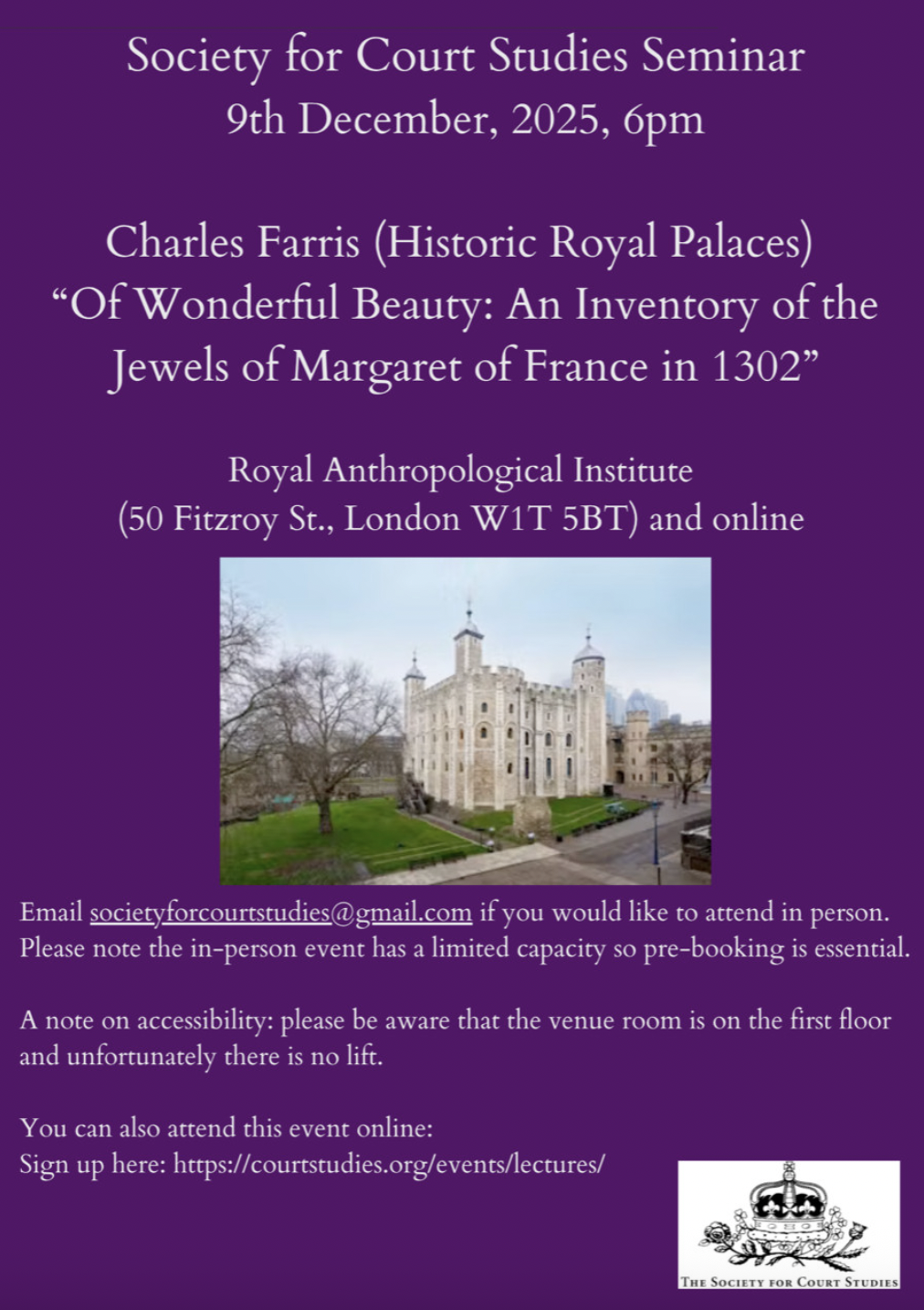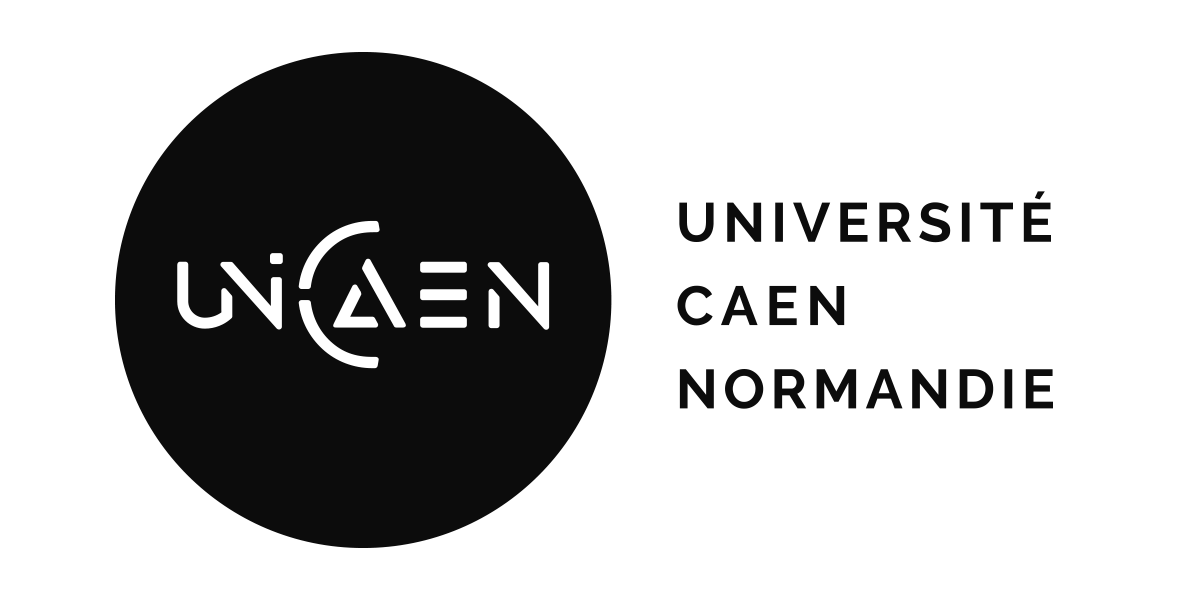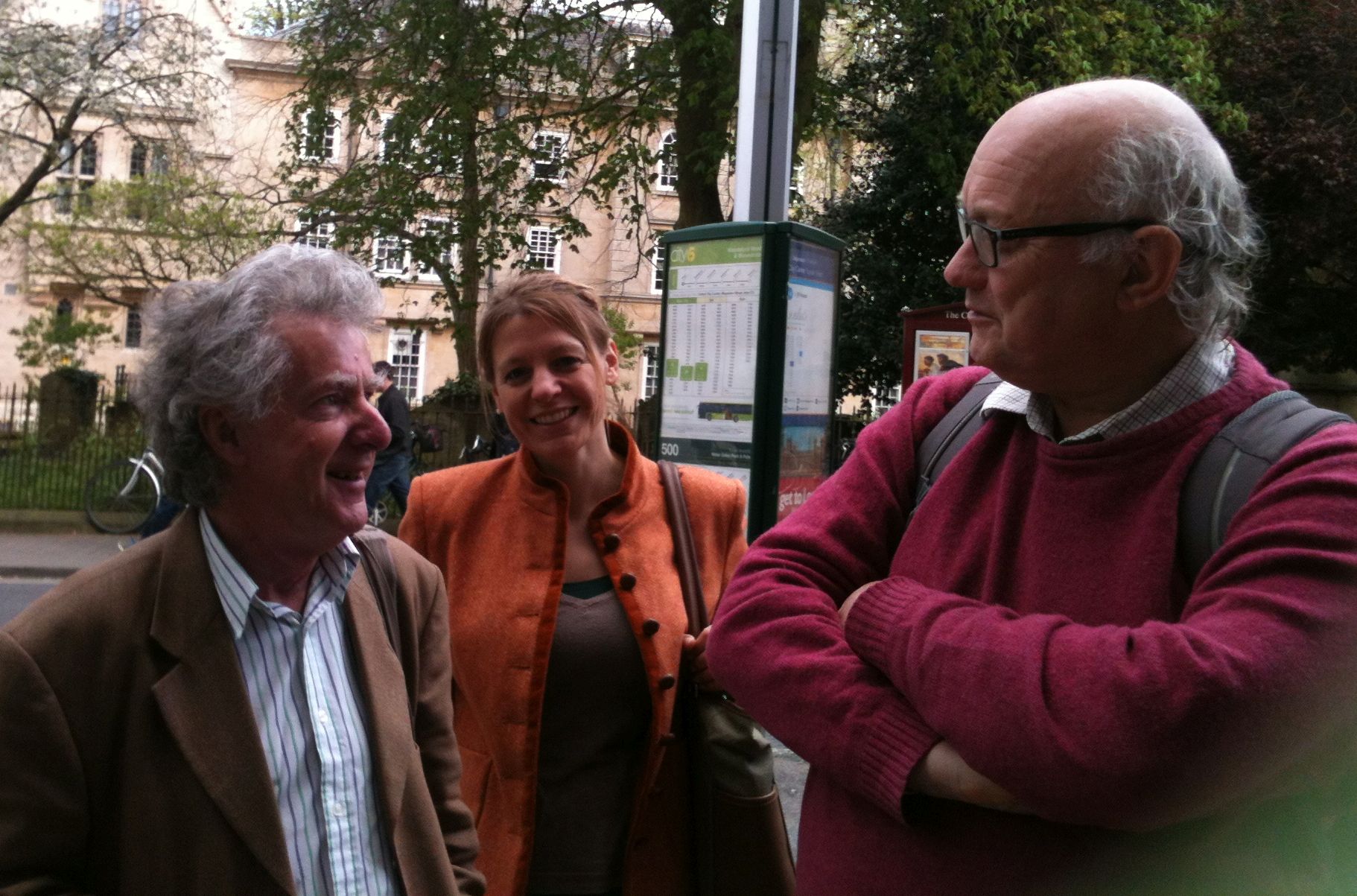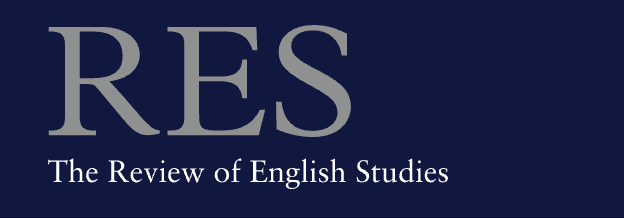

Society for Court Studies Seminar




Call for Papers 1: You Are On Native Land: Understanding Medieval Studies in Turtle Island
The EDID Committee of the CSM/SCM invites papers on Indigeneity and the medieval.
It has been over a decade since the Truth and Reconciliation Commission released their report and 94 Calls to Action. Academia was called to decolonize, reconcile, and Indigenize their approach to research, scholarship, and the classroom. In response to a long history of colonial violence from researchers (ranging from tokenism to extraction), Indigenous scholars of the medieval, such as Wallace Cleaves (Tongva), Tarren Andrews (Bitterroot Salish), and Sarah LaVoy-Brunette (White Earth), have stressed the importance of real and thorough engagement with Indigenous communities and thought in this work. This panel builds on the excellent conversations from the 2025 International Congress of Medieval Studies’ “Slow Engagement” Roundtable, which asked medieval scholars to consider how they’ve ‘slowed down’ to be responsible and reciprocal in their learning, approaching, or engaging with Indigenous Studies. This panel asks the following questions: what role has Medieval Studies played in answering the Truth and Reconciliation Commission’s call? What role does Medieval Studies have in reconciliation more broadly? How do/should we continue to engage with Medieval Studies on Indigenous lands? For non-Indigenous scholars, what changes to your approaches have you made? This session will focus on best practices for the inclusion of Indigenous approaches to Medieval Studies and/or on (re)considering the exclusion of Indigenous groups from the larger narratives of the past.
Papers might consider:
•How can we respectfully and appropriately engage with Indigenous methodologies in our approaches to medieval studies?
•How can we engage relationally across Indigenous Studies and other forms of critical approaches, such as Critical Race Studies, Queer or trans studies, gender studies, etc.?
•How have Indigenous communities responded to, engaged with, subverted, or appropriated medieval studies or medievalism?
•How can a field like medieval studies engage with the 4Rs of Indigenous research: respect, relevance, reciprocity, and responsibility?
•What are some critiques of current or historical approaches among non-Indigenous scholars and/or the harms undertaken from extractive research protocols among others?
•What do personal and/or scholarly engagements with Indigenous communities, identities, and Knowledge Keepers look like for different medievalists, and what has been learned from such engagements?
•What has been the impact of colonialism on the discipline of medieval studies? Alternatively, how have medieval studies been an essential tool in colonialism?
Presentations may be in either English or French and should be 15- 20 minutes in length. Please submit proposals by email by January 5, 2026. Please note that while this is an in-person conference, the EDID committee can try to arrange some Zoom participation as needed for accessibility reasons within the parameters of what is possible at St Francis Xavier University. For Inquiries or Proposal Submissions, please contact Brenna Duperron at brenna.duperron@unbc.ca.
Proposal Submission Details: Paper proposals must include a document giving the title plus a one-page abstract (without identifying the author). A separate document should consist of a one-page curriculum vitae which includes the paper’s title at the top.
**Scholars need not be members of the Canadian Society of Medievalists to submit proposals but, by the time of the conference, must be members in good standing and are expected to pay their 2025-26 annual membership fees to CSM / SCM by March 15, 2026 if they are not already members.
Call for Papers 2: Queer World-Making
The EDID (Equity, Diversity, Inclusivity and Decolonization) Committee of the CSM/SCM invites papers for a session on queer world-making in medieval studies. This session takes as its starting point the idea that queerness is not only an identity category or critical lens, but also a mode of imagining, creating, and inhabiting other worlds. We are interested in how medieval texts envision alternatives to normative ideals, and in how queer approaches to these texts might open transformative possibilities.
This panel invites work that embraces queerness as expansive, intersectional, and intertwined with other modes of resistance and re-worlding. We especially welcome papers that engage the intersections of queerness and race, disability, trans studies, postcolonial critique, Indigeneity, and class.
Papers might consider:
•Queer spatialities, utopias, and/or ecologies in medieval literature and art
•Queer desire and embodiment in practices of world-making
•The politics of imagining otherwise: resistance, refusal, and possibility
•World-building and/or world-making in adaptation (fantasy, games, fandom, etc.)
•Queer pedagogy as institutional or epistemological world-making
Presentations may be in either English or French and should be 15- 20 minutes in length. Please submit proposals by email by January 5, 2026. Please note that while this is an in-person conference, the EDID committee can try to arrange some Zoom participation as needed for accessibility reasons within the parameters of what is possible at St Francis Xavier University. For Inquiries or Proposal Submissions, please contact Gavin Foster at gavin.foster@dal.ca.
Proposal Submission Details: Paper proposals must include a document giving the title plus a one-page abstract (without identifying the author). A separate document should consist of a one-page curriculum vitae which includes the paper’s title at the top.
**Scholars need not be members of the Canadian Society of Medievalists to submit proposals but, by the time of the conference, must be members in good standing and are expected to pay their 2025-26 annual membership fees to CSM / SCM by March 15, 2026 if they are not already members.
Call for Papers 3: Medieval Engagements with Disability
The EDID (Equity, Diversity, Inclusivity and Decolonization) Committee of the CSM/SCM invites papers for a session that will explore disability in the medieval past and/or the ways in which disability studies and medieval studies fruitfully intersect. The session welcomes papers that consider understandings of non-standard human bodies from the medieval past and/or reflect upon the ways in which, as Godden and Hsy write, “the study of disability in the Middle Ages challenges modern narratives of bodily integrity and autonomy” (334). The non-standard body in the Middle Ages takes on a variety of forms both familiar and unfamiliar to us today, from the use of spectacles to colonies of lepers. Disability is here understood inclusively as a broad spectrum of somatic and sensory capacities, and contributors are encouraged to explore the topic widely, including considerations of disability within medieval studies from lived realities to fictional representations.
Papers might consider:
Presentations may be in either English or French and should be 15- 20 minutes in length. Please submit proposals by email by January 5, 2026. Please note that while this is an in-person conference, the EDID committee can try to arrange some Zoom participation as needed for accessibility reasons within the parameters of what is possible at St Francis Xavier University. For Inquiries or Proposal Submissions, please contact Emma-Catherine Wilson at emma-catherine.wilson@hertford.ox.ac.uk.
Proposal Submission Details: Paper proposals must include a document giving the title plus a one-page abstract (without identifying the author). A separate document should consist of a one-page curriculum vitae which includes the paper’s title at the top.
**Scholars need not be members of the Canadian Society of Medievalists to submit proposals but, by the time of the conference, must be members in good standing and are expected to pay their 2025-26 annual membership fees to CSM / SCM by March 15, 2026 if they are not already members.
Call for Papers 4: Understanding Medieval Race-Making
The EDID (Equity, Diversity, Inclusivity and Decolonization) Committee of the CSM/SCM invites papers for a session on medieval race-making.
Until recently, texts written prior to the 16th century were often considered “before race.” It was popularly understood that the concept of ‘race’ began with the trans-Atlantic slave trade, the discovery of the “New World” and the scientific Enlightenment’s interest in categorization. Scholars such as Stuart Hall, Matthew X. Vernon, Cord Whitaker, Geraldine Heng, and Dorothy Kim, among others, have worked to disrupt this misconception, expanding our understanding of race not only temporally and geographically, but to reconsider how it extends past skin colour to encompass a variety of social, physical, and cultural categories that human society has linked to race and race-making. Paradoxically, the idea that ‘race’ is a modern construction, however, reinforces the myths of the medieval period itself as an insular space without global or trans-national reach. These continued myths have spurred current white supremacist usage of the medieval in their justification and execution of violence (such as the attacks in Christchurch, New Zealand and Charlottesville, the Sons of Odin group, or the January Insurrection Attempt in the US).
This panel asks the following questions:
Presentations may be in either English or French and should be 15-20 minutes in length to allow ample time for discussion. Please submit proposals by email by January 5, 2026. Please note that while this is an in-person conference, the EDID committee can try to arrange some Zoom participation as needed for accessibility reasons within the parameters of what is possible at St Francis Xavier University. For Inquiries or Proposal Submissions, please contact Arkaprabha Chakraborty at arkaprabha.chakraborty@mail.utoronto.ca.
Proposal Submission Details: Presentation proposals must include a title and brief (250 word) abstract of the proposed presentation (which does not identify the author) as well as a separate one-page curriculum vitae which includes the presentation’s title at the top.
**Scholars need not be members of the Canadian Society of Medievalists to submit proposals but, by the time of the conference, must be members in good standing and are expected to pay their 2025-26 annual membership fees to CSM / SCM by March 15, 2026 if they are not already members.

The ERC Advanced Grant AGRELITA Project n° 101018777, “The reception of ancient Greece in pre-modern French literature and illustrations of manuscripts and printed books (1320-1550): how invented memories shaped the identity of European communities”, directed by Prof. Catherine Gaullier-Bougassas (Principal Investigator), opens guest researchers residences.
This call for applications is open to anyone, of French or foreign nationality, who holds a PhD in literature, art history, or history, whose work focuses on the history of books, cultural and political history, visual studies, or memory studies, wherein the competence and project are deemed to be complementary to the ones of the AGRELITA team.
For more information and contact details, visit their dedicated webpage.

An extra large offering of medieval events for sixth week, and a particularly busy Monday! As always, you can find a complete copy of the Oxford Medieval Studies Booklet here. Any last-minuted changes will be updated in the weekly blogpost and in the calendar, both accessible via https://medieval.ox.ac.uk/.
Monday
Tuesday
Wednesday
Thursday
Friday
Opportunities


Please see below the details for the History of Liturgy Seminar taking place this coming Monday (17th Nov) at 17.30, both in person at Balliol College and online.

Oxford Medieval Studies is saddened to hear of the death last week of Tony Hunt (1944-2025), Faculty Lecturer in Medieval French and Fellow of St Peter’s College (1990-2009).
Tony’s contributions to Anglo-Norman and Medieval French research were prolific and ground-breaking, recognised by Fellowship of the British Academy in 1999; he was decorated Officier dans l’Ordre des Palmes Academiques in 2009. A brilliant scholar with a razor-sharp intellect he was also a generous and much valued tutor, supervisor, mentor, and colleague. A pillar of the Anglo-Norman studies community, he was President of the Anglo-Norman Texts Society from 2011 until his death; his editions of texts ranged remarkably, from chess treatises and the teaching and learning of Latin in England to medicine and botany.
ANTS website Tony Hunt (1944-2025) | Anglo-Norman Text Society
Image: Tony Hunt, Simone Schultz-Balluff, and Nigel Palmer in 2016

A medieval event a day keeps the blues away – meet week 5 head-on with another set of seminars and events! As always, you can find a complete copy of the Oxford Medieval Studies Booklet here. Any last-minuted changes will be updated in the weekly blogpost and in the calendar, both accessible via https://medieval.ox.ac.uk/.
This week, on the 13th and 14th of November, the Crafting Documents project, alongside the Centre for Manuscript and Text Cultures, is hosting the ‘Heritage Science and Manuscript Conference‘. Registration is free, and the full programme of events is available here.
Monday
Tuesday
Wednesday
Thursday
Friday
Saturday
Opportunities

Friday 28 November 2025
The Old Library, All Souls College, Oxford
On the 100th birthday of Review of English Studies, this colloquium will reflect on the role of it and other journals in literary studies in the past and today.
All are welcome. To help with catering, please register your intention to attend with Professor Daniel Wakelin, daniel.wakelin@ell.ox.ac.uk.
· 2.00, welcome remarks, Professor Colin Burrow (Oxford)
· 2.15–3.15, on the history of Review of English Studies, Professor Stefan Collini (Cambridge)
· 3.15–3.45, tea
· 3.45–5.15, on journals today: on Review of English Studies, Professor Juliette Atkinson (UCL); on Textual Practice, Professor Peter Boxall (Oxford); on Essays in Criticism, Professor Seamus Perry (Oxford)
· 5.15, a drinks reception to toast the birthday of Review of English Studies

The aim of the MHS Essay Prize is to promote and encourage scholarly research and popular interest in the history of the medieval Mortimer family of Wigmore and its cadet branches, including those of Chirk and Chelmarsh, and the family’s impact on the history and culture of the British Isles. Or the history, geopolitics, topography, laws, economy, society and culture of medieval borderlands, including comparative studies, between 1066 and 1542. Success will garner financial prizes, the opportunity for peer-reviewed publication, membership of the MHS and speaking opportunities. The closing date for entries is 15th February 2026.